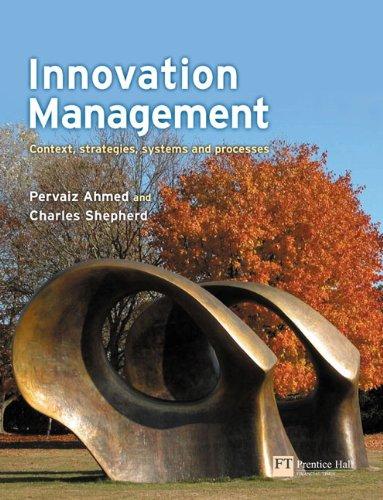If the average age of the scientists in your companys R&D department is 48, surely there is
Question:
If the average age of the scientists in your company’s R&D department is 48, surely there is no need to worry yet about losing expertise if one of them retires? Wrong, says David DeLong: ‘I want to know which of the key people are 56, 58 or 60 3 who is getting ready to walk out the door.’ Mr DeLong, a research fellow at MIT’s AgeLab, is one of several experts urging organisations to work harder at ensuring that the knowledge held only in employees’ heads is not lost when they leave the company or retire.
Judging by Accenture’s (2005) global study nearly four in 10 respondents said their organisations did not have a formal process and/or tools for capturing their workplace knowledge. 27 per cent said they expected to retire without any transfer of knowledge and only 17 per cent expected an intensive, months-long process of knowledge transfer.
Northrop Grumman is very similar to many other aerospace companies, as a large proportion of its workforce are baby-boomers. Mr Cheese of Northrop Grumman says the technology has not been flexible enough to support the very real challenges of KM [knowledge management], and companies have often focused on technologies that act like libraries 3 giving a structure and taxonomy to corporate information 3 when KM is really about tacit knowledge retained by individual employees.
This ‘social context of knowledge’ is often overlooked, says Eric Lesser, an expert in human capital issues at IBM Business Consulting Services. ‘Performance in highly competitive marketplaces requires workers armed with knowledge that goes beyond the explicit information contained in manuals and databases. There is an increasing need to tap into the experience, intuition and social networks of employees’, says Mr Lesser. ‘Technology can enable and help, but if a company does not have a culture of knowledge sharing and collaboration, all the technology in the world isn’t going to help’, he says. ‘Managers as a whole have not been educated to see intellectual property as an asset in the way that money is’, agrees John Kay, a member of the management group at PA Consulting Group. ‘If the average company managed its money in the way it managed its IP, it wouldn’t be in business.’
There is, finally, the question of who takes responsibility for implementing KM within organisations. Some companies have appointed, at boardroom level, knowledge managers who can influence the direction of the company, says Mr Kay, but others in the role have been glorified IT managers, who can organise the information but cannot influence the cultural aspects of KM. Experts such as Mr Kay and Mr DeLong point to several instances of companies that have recognised the need for effective KM. BP wins praise on the technology side for its expert locator system that helps employees find the right specialist within the company on a given issue, such as a particular type of oil drilling problem. The UK oil major is also commended on the touchy-feely front for making it part of a specialist’s job to help a successor, rather than simply getting on with his or her new job. Mr Kay contrasts that approach with the attitude in some parts of the UK civil service, where ‘people are deemed to be the expert in a field at the instant they step into it’.
QUESTIONS
1. What types of knowledge are discussed in this case?
2. What difficulties exist if those different types of knowledge are to be captured and used by future employees?
3. What further challenges exist for organisations that want to share knowledge between existing employees?
Step by Step Answer:

Innovation Management Context Strategies And Processes
ISBN: 9780273683766
1st Edition
Authors: Charlie Shepherd, Pervaiz K. Ahmed





